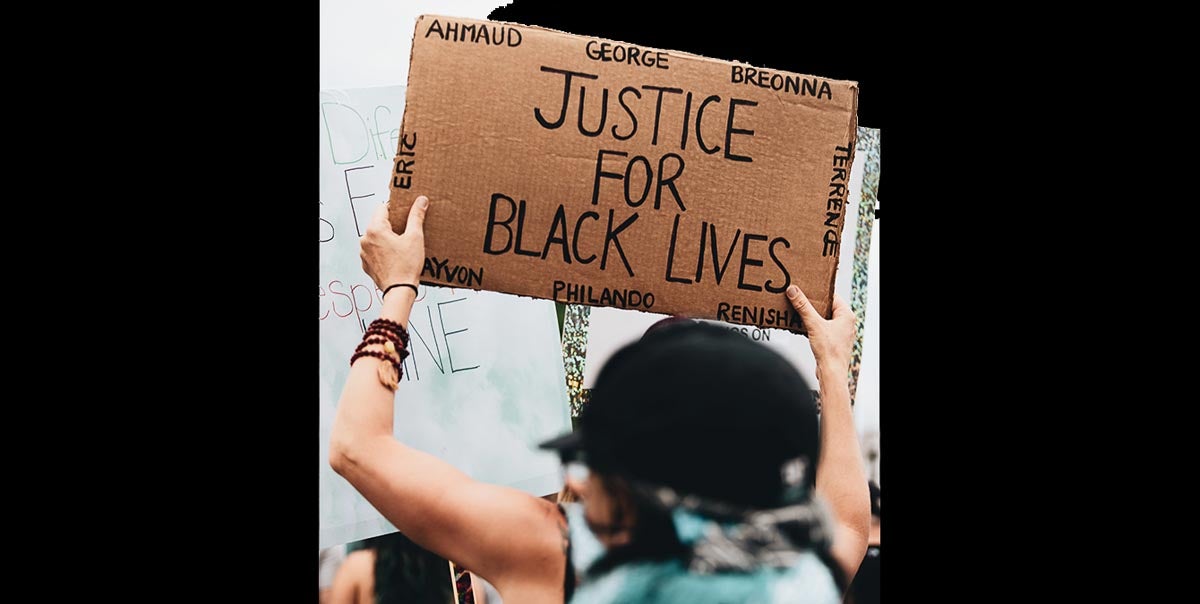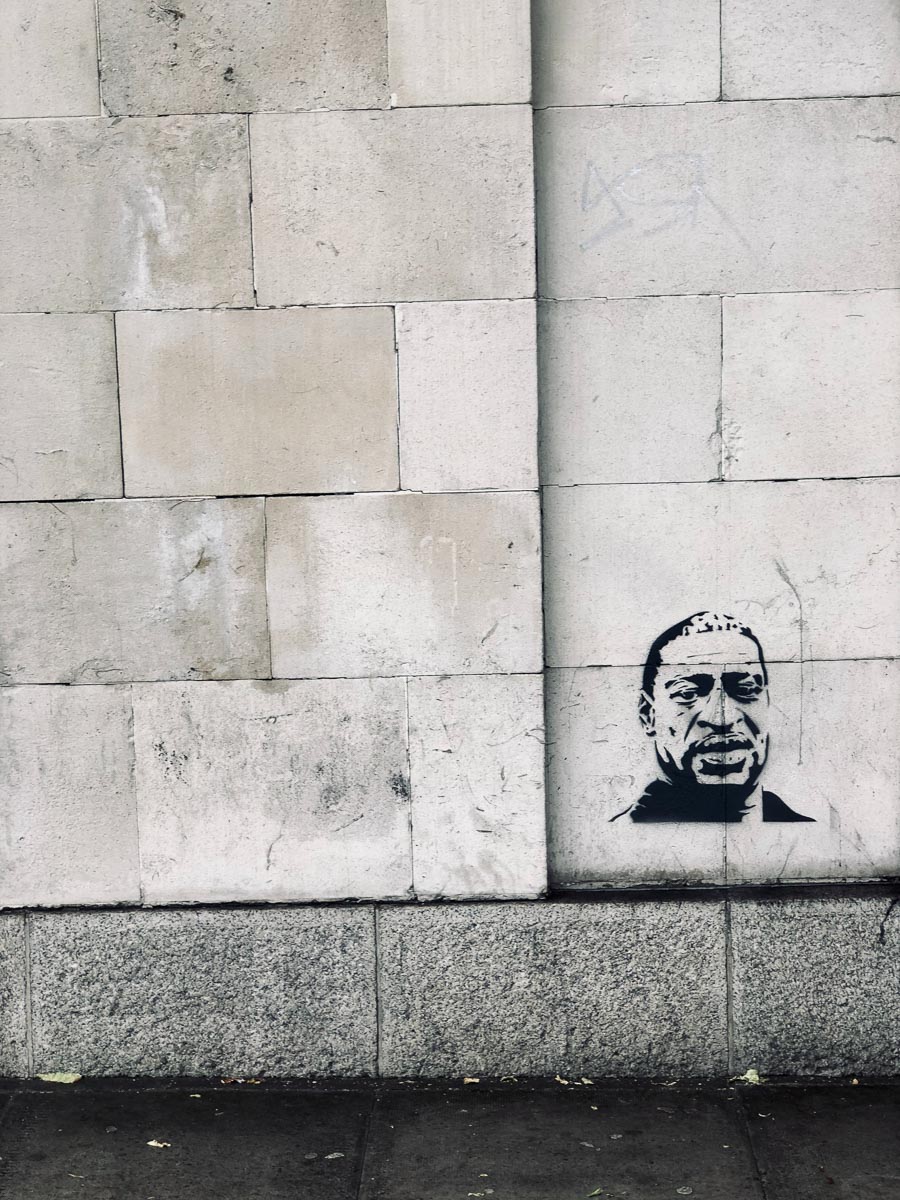It happened again, with the killing of George Floyd, a 46-year-old Third Ward native in Minneapolis. But before that, with Breonna Taylor, a 26-year-old EMT in Louisville, Kentucky. And before that, with Ahmaud Arbery, a 25-year-old who was out for a jog in Brunswick, Georgia. It is no surprise that we are again talking about protests and riots, just five years after outrage over the deaths of Eric Garner, Michael Brown, Freddie Gray and other black men and women sparked widespread protests against police violence and brought the Black Lives Matter movement into the nation’s consciousness.
People are dying. And those people do not “just happen” to be black. They are systematically dying because they are seen by others as black. And they are not just dying disproportionately from a new disease (but they are). They are dying at the hands of (white) people who are supposed to serve and protect all communities.
A variety of tactics have been used in an attempt to address the policing problem in the United States, but all of them have failed. The recent deaths of black citizens make that clear. We suggest that more dramatic, structural changes are needed.
This is the problem
When we started writing this update on protests, describing the problem — or the cause — was the most difficult part. We found ourselves going in circles and repeating what has already been said. But that’s because we know what the problem is. We just have to face it.
The problem is racism.
We would not see the patterns that we do if racism were not a factor. It is as simple as that.

Audit studies provide the clearest evidence. In such studies, every variable is the same except the race of the person looking for a job, a house, etc. These studies show that black applicants receive half as many callbacks or job offers as equally qualified whites. And that the level of discrimination has been nearly constant since 1989. Put differently: we haven’t made nearly as much progress in reducing racial inequality as you probably thought.
We see the same disparities when focusing on arrests. A study of police traffic stops revealed nearly 75% of the drivers pulled over were black, yet they comprised just 13% of all drivers. We know this disproportionate attention to — or over-policing of — black drivers is not due to their driving because research shows blacks and whites speed at a similar rate.
Police interactions with people of color are also notoriously hostile, but we emphasize that this is not limited to the unfortunately extreme cases that receive the most media attention. Research consistently has shown that police officers disproportionately shoot, tase and kill black people in the line of duty.
If that were not enough, then came COVID-19. That was the icing on the cake. More and more data are becoming available and the pattern is clear: Communities of color are being hit hard by the disease. The CDC finds that black and Hispanic individuals are dying at disproportionately high rates compared to non-Hispanic whites. Among New York City residents, for example, the age-adjusted death rate from COVID-19 for African-Americans is 92.3 out of 100,000, 74.3 for Hispanic persons, while it is 45.2 for non-Hispanic white individuals. For many, the fear and increased danger of succumbing to a global pandemic underlies the anger that is being revealed by the protests.
What’s more, marginalized communities — which include people of all races but with high concentrations of racial/ethnic minorities — are most adversely affected economically by the coronavirus pandemic. Most of the residents in these areas are the working poor who are employed in the service industry that has been decimated by the coronavirus. They lack the work-at-home options of white-collar occupations. These communities also have high populations of residents who rent and, therefore, do not have the same protections as homeowners, which puts them in a precarious post-isolation economic position with their landlords. Increased stress about the future contributes to the frustration that fuels black protest.
But the cherry on top is the injustice. The unwillingness of the powers that be to hold police officers accountable is what makes all of the inequality insufferable. Who could stay quiet after all of that?
Our systems are broken, and racism broke them.
This is how to address the problem
You can’t fix racism. But you can take steps to mitigate its impact.
We focus our discussion here on tactics relevant to reducing the impact of racism within policing, specifically, but similar action will be needed in all parts of society — employment, housing, health, education, politics, other facets of the criminal legal system and more.
We start our discussion with what hasn’t worked.
One of the first steps organizations take after a “race issue” is diversity training. You try to change how people think, or at least how they approach a situation. Police departments have also gone a step further by using implicit bias training, which includes firearms retraining. But this kind of approach leaves the rest of the system intact and relies on individuals — who often balk at the mention of diversity training — to internalize the training with very little incentive to actually apply it in their work.
An alternative training tactic — sometimes referred to as de-policing — attempts to reduce the reliance on guns altogether. However, guns are not the only means of killing unarmed citizens. The death of George Floyd — a result of excessive physical force — makes this point poignantly clear.
Finally, some have called for a return to community-based policing as a means of addressing racism in policing. This integrative form of policing “requires that the police work cooperatively with people in neighborhoods.” Although generally considered a positive solution, this only works if the officers can connect with the community they serve and gain the trust of community members. (For a positive and successful example, check out this 2015 episode of “This American Life” that featured stories about policing and race.) Many police officers — including those who are Black — come from middle-class backgrounds, which can make that kind of connection difficult when interacting with disadvantaged communities.
We need to change how we police from the ground up. We need to rethink how we hire police officers. This does not mean hiring “less qualified” people. Instead, it requires a change in how we think about what makes a good police officer. By making a conscious effort to hire and recruit people who will best serve the community, we can make progress toward a more just and effective policing system.
Simultaneously, we need to alter the surrounding structures to incentivize equitable policing and increase accountability for excessive violence, racist or not. Citizen review panels have been used in some cases, but were rendered ineffective when police officers were not in attendance. Mandatory attendance of something like a citizen review panel — comprised of everyday people — could be helpful in providing much-needed external accountability for our police departments. Otherwise, we leave the police to police themselves.
With or without the threat of future protests, something needs to change.
Heather O’Connell is an assistant professor of sociology at Louisiana State University. She is a former Kinder Institute fellow.
Maretta McDonald is a doctoral candidate in sociology at Louisiana State University.

